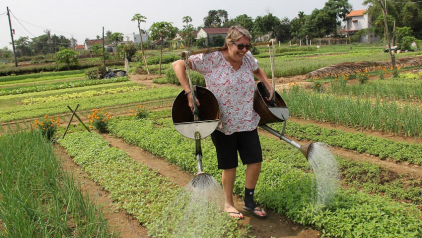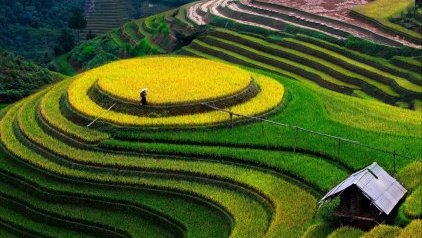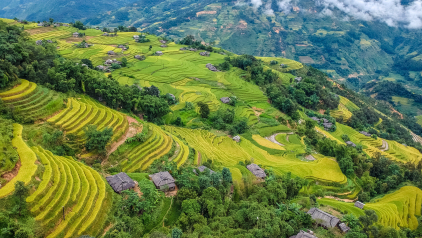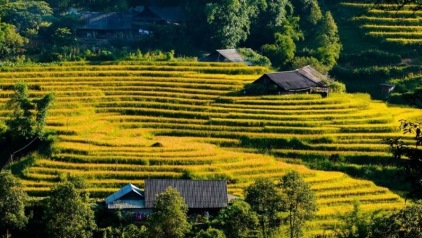One Day of a Vietnamese Farmer
Have you ever been curious about a typical day in the life of a rice farmer and the laborious process of rice farming?
Rice is the staple diet in many Asian countries in general, and Vietnam is not an exception. Perhaps, you have seen rice paddy fields in most Asia countries. However, you do not know the sequence of rice cultivation in Vietnam, especially if you are a Westerner. Even with many Vietnamese people, a bowl of rice is just a simple walk to the nearest market and they rarely think about the production of their daily food. Have you ever been curious about a typical day in the life of a farmer and their working process?
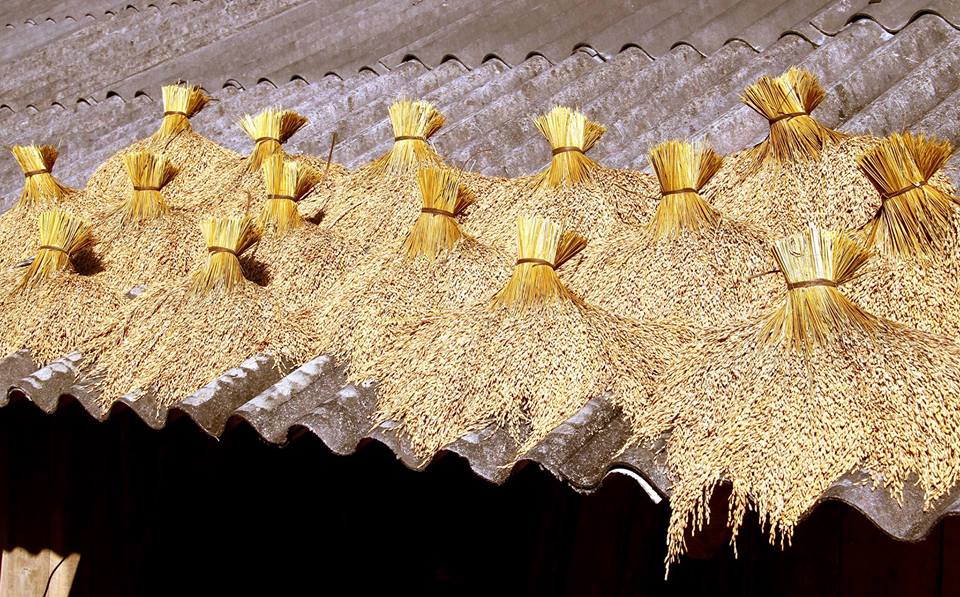
Rice - Vietnamese golden food
Vietnam is an agricultural country and about 67% of Vietnamese people live in rural areas. In the cities, heavy traffic, construction equipment, and modern skyscrapers reflect Vietnam’s rapid urbanization. But the countryside tells a different story. Deep in the rural areas that occupy a majority of the country live tight-knitted communities deeply rooted in traditions of family and fellowship. A trip to the countryside can help you find a low-key life, feel a sense of peace and recharge your soul. There is not much to do but that’s really the point – this is about taking in the views, soaking up the atmosphere and seriously reducing the pace of your modern lifestyle. But "not many things to do"? Passing by and watching locals, you may think the life of a farmer really relaxing and boring. Spend a day change yourselves into real farmers working on fields, you'll also change your point of view. Now read this article, we will show you a day of a Vietnamese farmer.
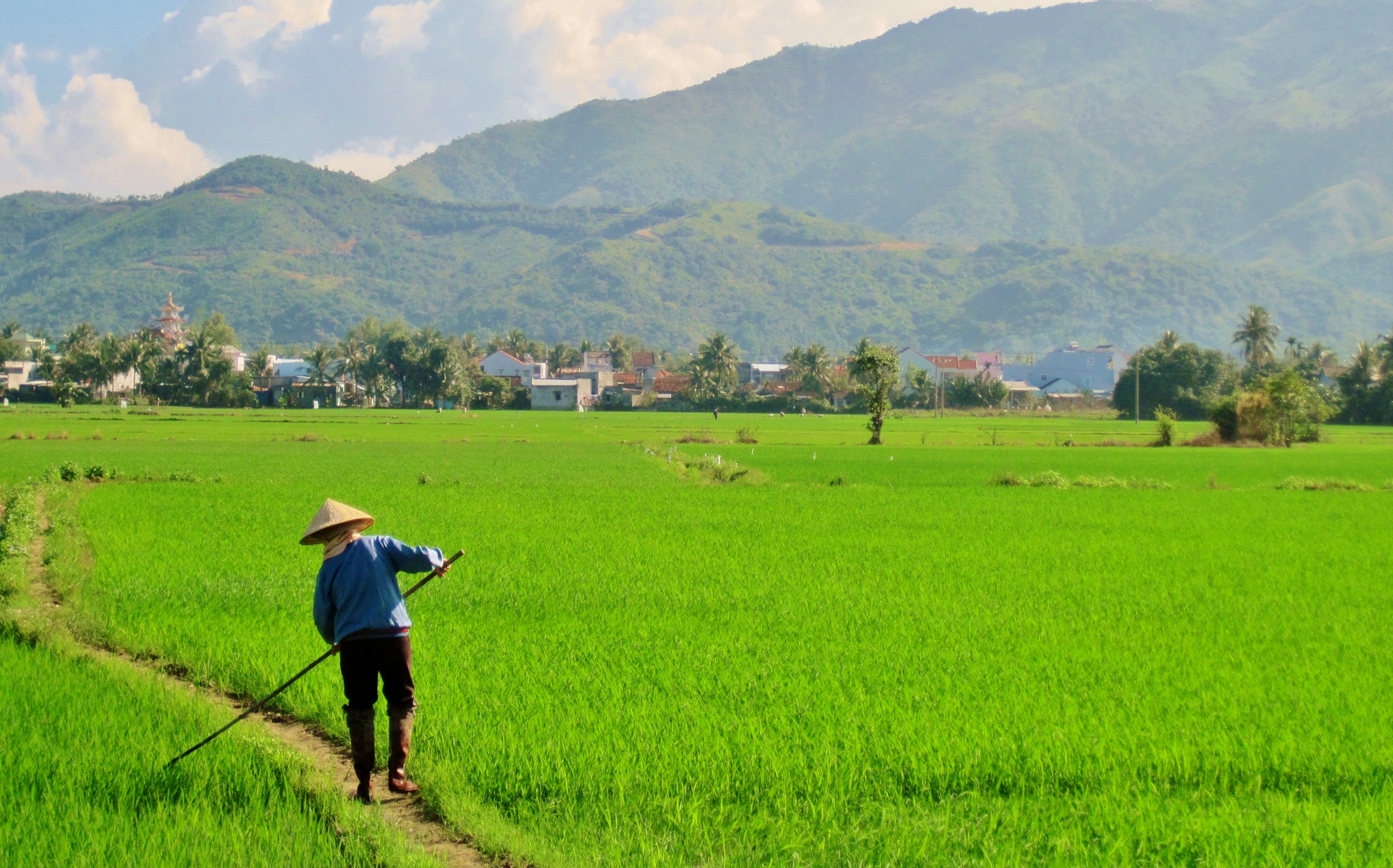
A farmer working on the field
Both men and women work in the fields. Rural women in Vietnam typically do hard outdoor physical labor, which keeps them physically fit and strong. Every day, they wake up early to get started on their work, normally before the sun comes up. The fields normally are near their houses, so they often walk to the field. The entire family helps out during planting and harvesting. Each family member has certain tasks to do. Men do heavy work like plowing and digging. Women work around the house and help with harvesting, planting, and weeding. The elders do light labor. Children, if not going to school, will help with the house chores. Girls clean, cook, and work in the vegetable garden; while boys carry water, and help the men in the field. In the countryside, almost every houses have a garden to grow vegetables, fruits for the family’s demand or selling for more incomes. Besides growing vegetables, they also keep cattle and poultry. The day ends up with a family meal together. It is a great time for all family members to share their stories and get closer to each other.
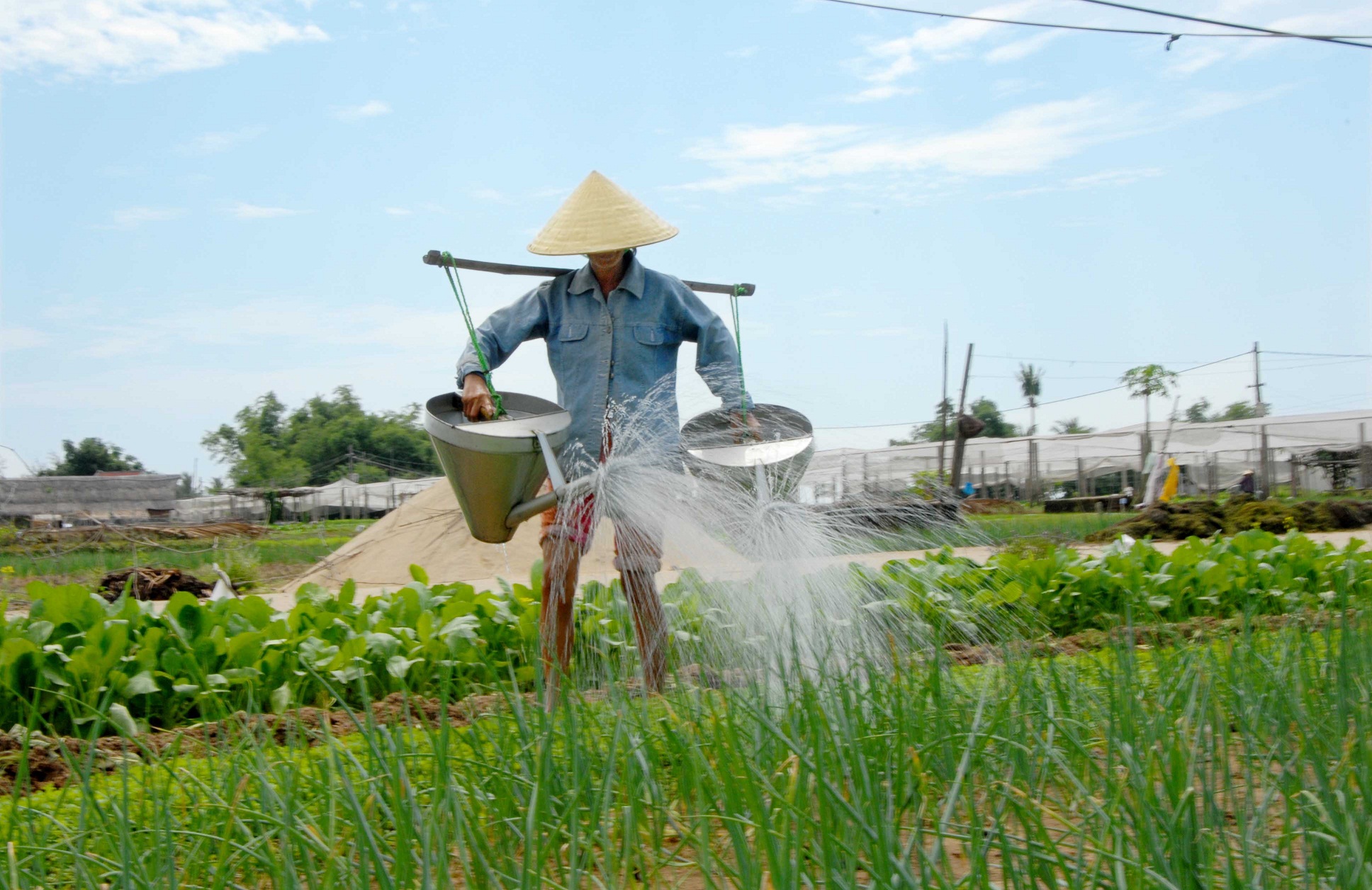
Farmer watering vegetables in her garden
Attending an agriculture practicing tour, you will have a chance to visit a local family and their houses. First, you'll dress like them. Typical clothes are loose pants and shirts that can be easily rolled up and kept out of water and mud. On the flooded field, people go barefoot. All over Vietnam, people wear conical-shaped hats called “Non la” to protect them from the burning sun and heavy rains. Then try your hands on sowing rice seedlings follow the instruction of your host, plowing, or harrowing on the soil. It may be not easy as its look but is really fun. Don't worry about the mud!
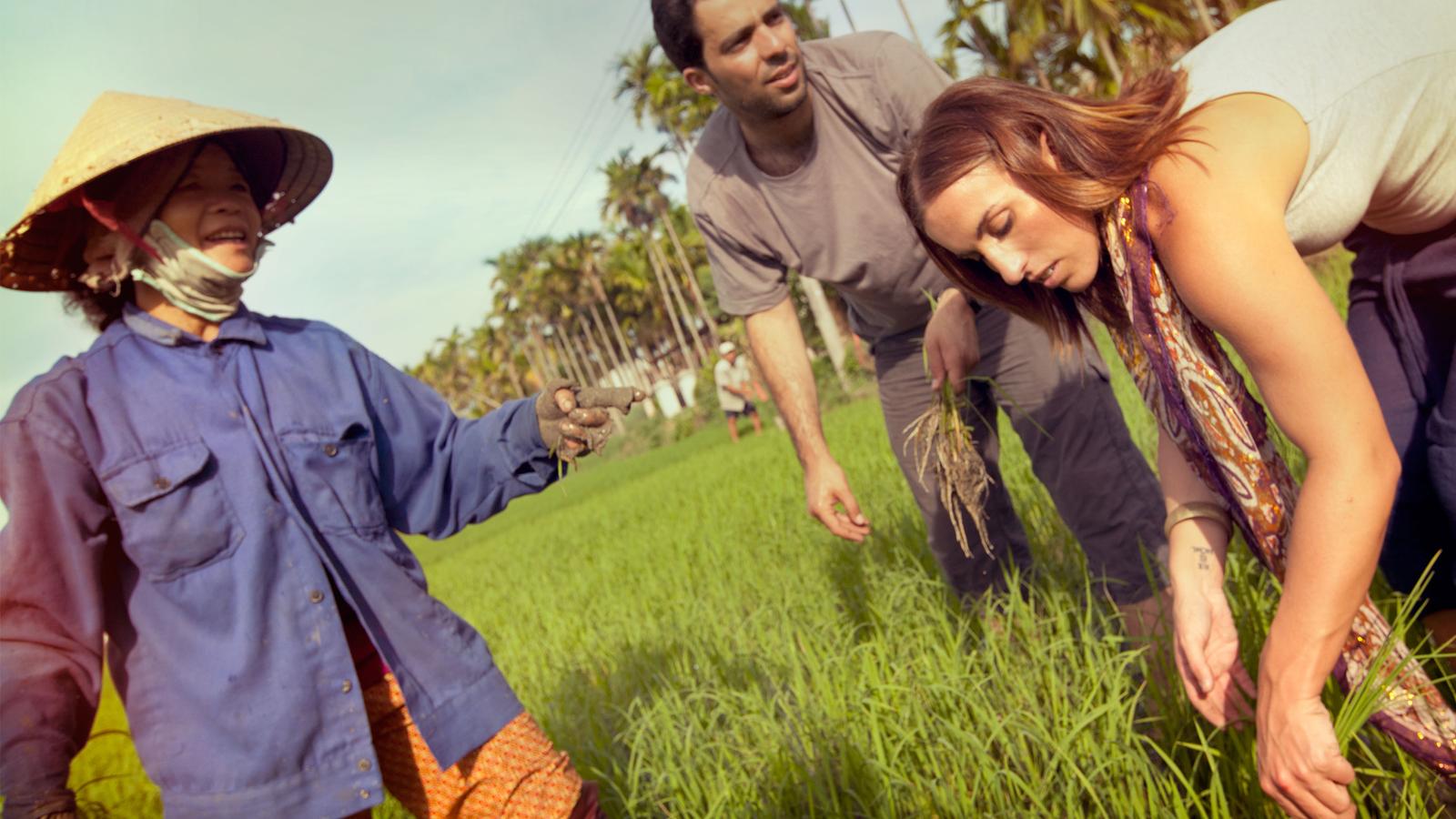
A local woman showing guests how to pick rice seedlings
In the middle of the heat of the day, Vietnamese farmers have a break. They often go home for lunch or have lunch right beside the field. This is quite interesting for foreigners who have little exposure to the natural environment due to modern working life. After (a few) hours working hard on the field, you feel tired and hungry, it is time for having a homely lunch with your host family. The meal may be simple with just a few dishes but you will totally enjoy it.
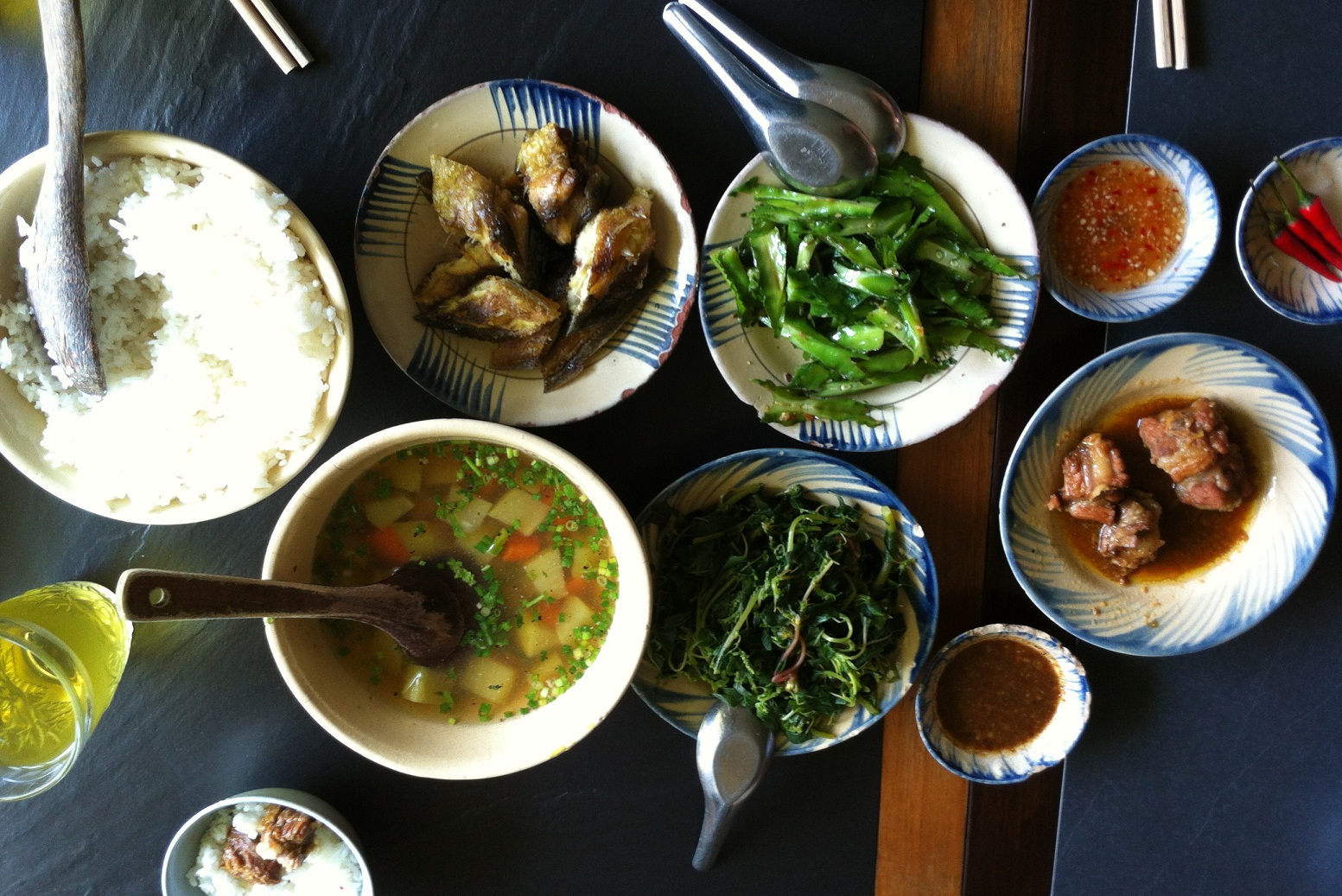
A simple meal of Vietnamese family in the rural area
If you have tried Vietnamese food, you might notice the use of lots of vegetables and fresh herbs in the cooking process. That is the reason why Vietnamese cuisine has always considered as one of the healthiest in the world. Why don't you follow your host to their garden and discover what they grow for daily meals? And you can join the farmers in preparing the soil, watering or picking vegetables, and many other gardening activities. This would remind your childhood memory. When you were a child, you liked to play in the garden, didn’t you?
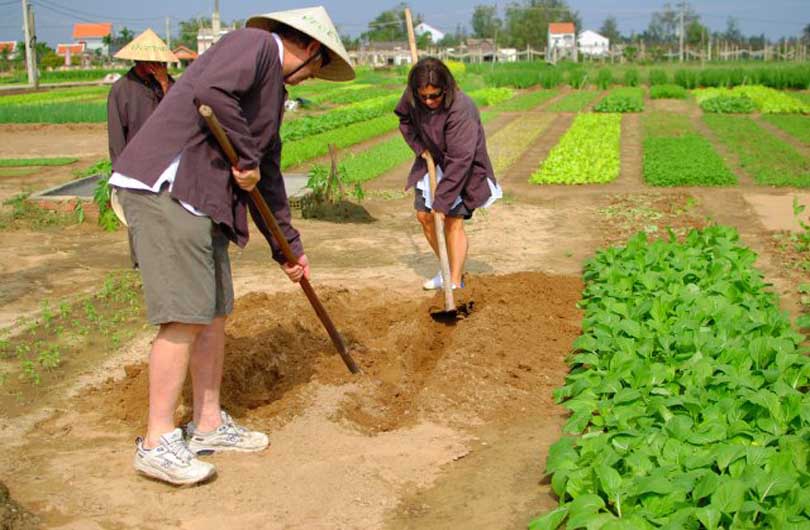
Learning how to prepare the soil. It's always great to enjoy homegrown!
In Vietnam, and throughout Asia, water buffalo has long been typical livestock for many families as they are very helpful in farming. Water buffalo are actually quite gentle and patient. Traditionally, buffalo were a major source of wealth for Vietnamese farmer families. The water buffalos can move through the deep, sticky mud fields. They help plow the fields and move heavy objects such as timber. For Vietnamese farmers, owning a water buffalo is the equivalent of owning a BMW in Western countries. The image of a young boy on the back of a water buffalo is an iconic image of Vietnamese culture. It is not every day that you can get a chance to climb on the back of an elephant or a water buffalo, right? So, when coming across the unique opportunity to experience riding a water buffalo through the lush green rice fields, don't miss it!
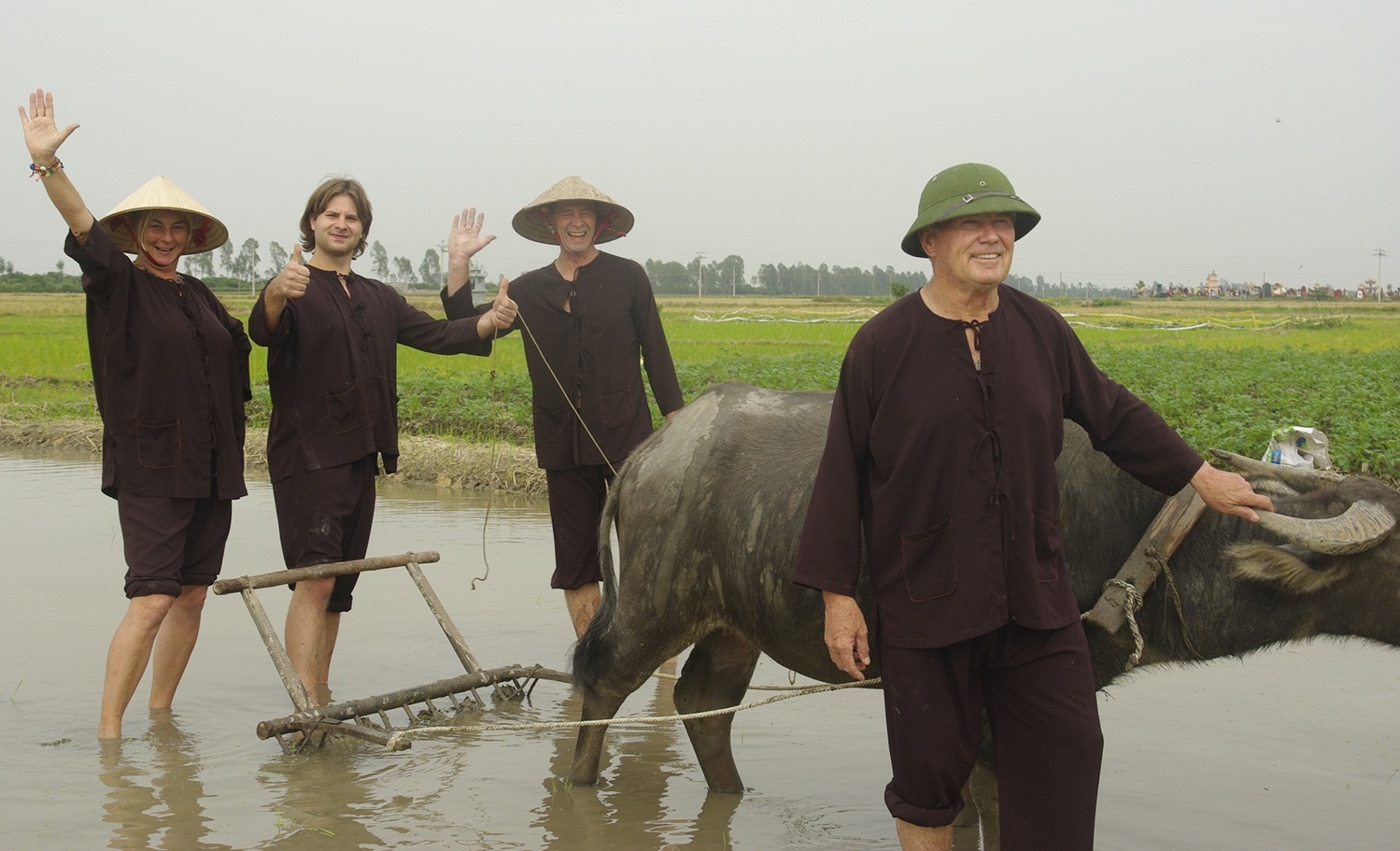
Plough the field using a buffalo - using a technique introduced thousands of years ago
You will also see many flocks of duck. Do you know how they help with farming? Let us tell you. Ducks not only provide food but also weed the rice fields and fertilize the rice with their droppings. They also eat the algae and other weeds that grow near the young rice plants.
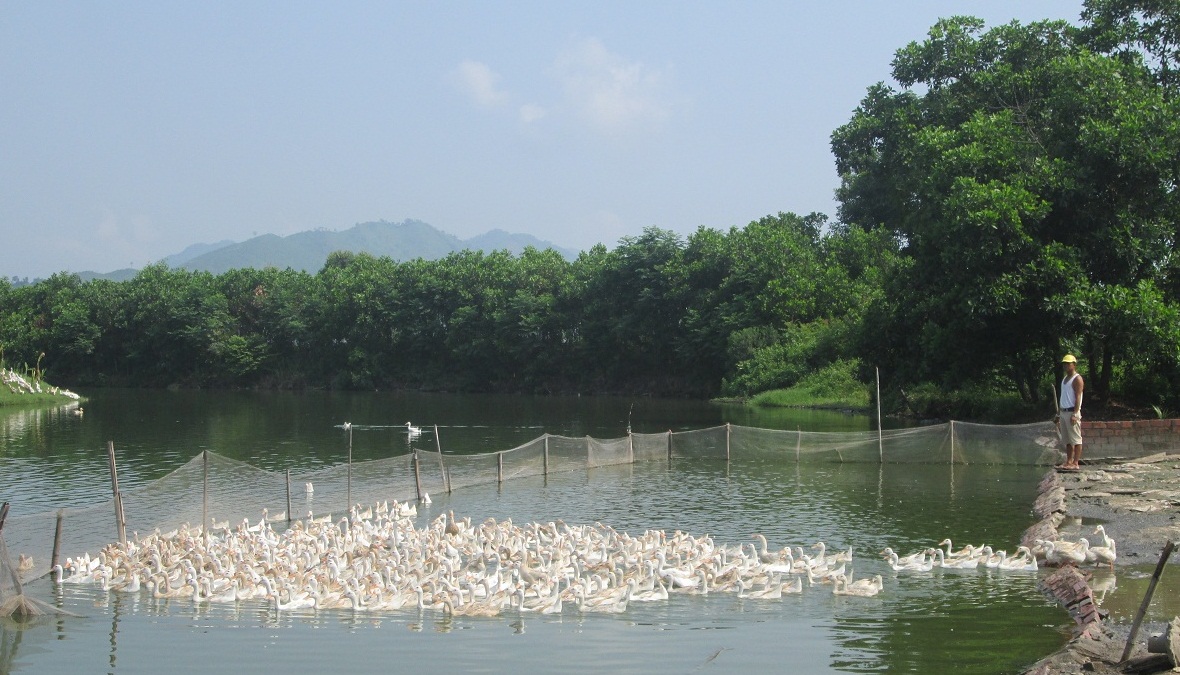
Walking or cycling along village paths, you'll see many flocks of ducks
From field to bowl, it is not a simple process. Experiencing the hardships of Vietnamese farmers, you'll learn that you are very lucky and respect your daily food. Vietnamese farmers’ incomes are still too low. Your trip will be even more meaningful if you know that you are helping them so much. So... Hey, when you travel, do you look for once-in-a-lifetime experiences?
Xuyen
Image Sources: Internet






